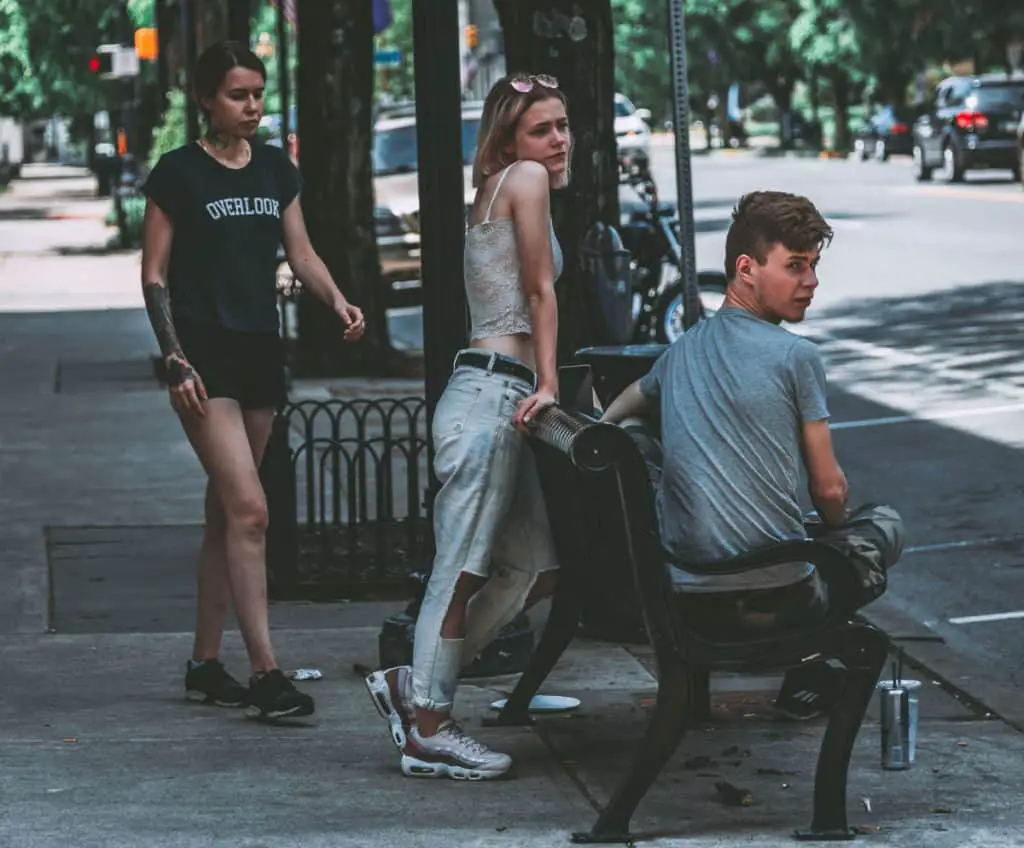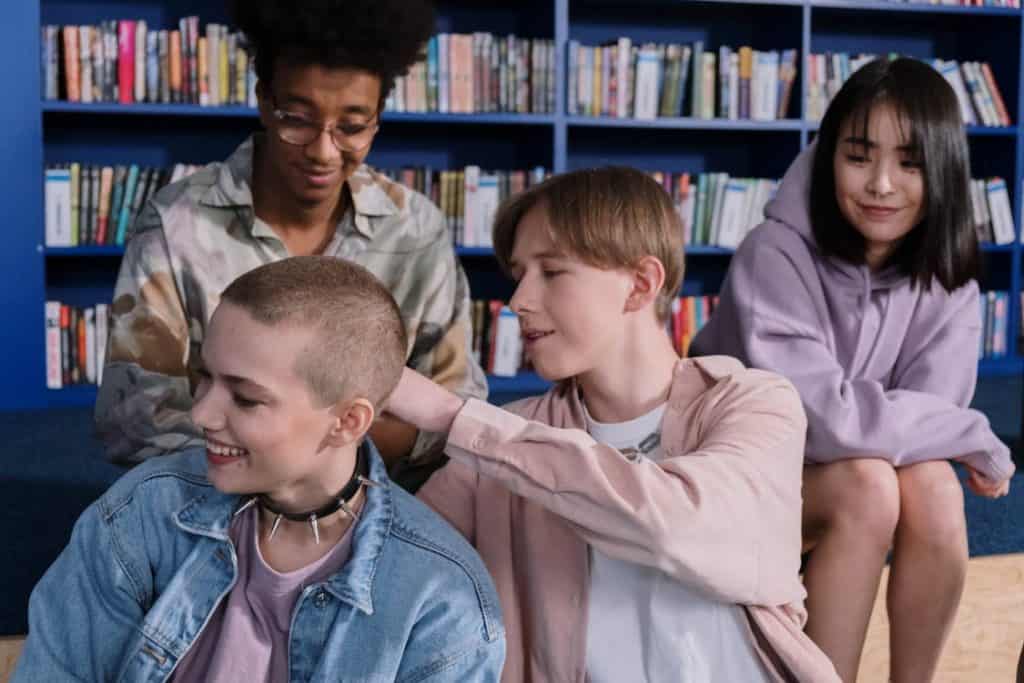With all the new experiences, journeys, and achievements, the teenage years are one of the best moments of a person’s life. But for most teenagers of today, it is only a “could have been” due to the judgments that clouded them. These young people have just started to mold their dreams to make them real. However, society has already bombarded them with negative stereotypes. While adolescents themselves know that these common teenage stereotypes don’t hold the entire truth, they still feel offended and bothered by such beliefs. Who wouldn’t, though?
When someone calls you lazy after accomplishing countless tasks, would you be happy?
Getting Rid of Stereotypes: 8 Things We Need to Stop Calling Teenagers

1. Irresponsible
The minds of older people only recognize one type of teenager: the irresponsible ones. We see them as kids who only make fun of others, teens who drive recklessly, the ones who couldn’t get an A+ at school, and couch potatoes. Sure, some teenagers are like that. But how about those who aren’t? What about teenagers who do household chores, help the community, and top their class? There are even teenagers who build their own businesses, work hard day and night, and break world records in sports.
Calling everyone irresponsible just because you know a teenager who’s not, is unfair on their part.
If you think that your teenager isn’t ready to handle their responsibilities yet, it is best to guide them to the right path. Teach them how to do practical life skills like cooking or doing the laundry. Also, they must learn how to manage their money and make good use of their time. As a parent, it is also essential to let your children know the consequences of their actions. It means that you must reward or recognize them when they do something right and teach them a lesson when they do something wrong.
2. Binge Drinker

Binge drinkers—it is one of the most common teenage boy stereotypes. Let’s check the numbers.
According to the National Institute on Alcohol Abuse and Alcoholism, 24.6% of teenagers aged 14 to 15 said they drank alcohol at least once in their life. Moreover, more than 820,000 young people in 2019 reportedly binge drink on more than five days over the past month from the survey. While the figures look high, you must also remember that there are 21.05 million 15 to 19-year-olds and 20.8 million 10 to 14-year-olds in the United States. See? Millions of teenagers don’t fall into your categorization of binge drinkers.
Of course, it is normal for parents to worry about their children’s alcohol consumption. Drinking too much alcohol can harm the health of teenagers and affects their cognitive development. To prevent your kids from drinking, help them understand the effects and risks of alcohol use. Moreover, you must also be your child’s role model. That means don’t drink excessively. Don’t put alcohol on full display in your house! Don’t leave several beers in your fridge, either. You may wonder where some of the bottles went the next morning.
3. Selfie King/Queen

For some teens, the netizen’s reactions to selfies have become equivalent to self-worth. Positive comments and numerous likes are most likely to boost their self-esteem, while negative feedback or no attention from their social media friends may result in calling themselves unattractive. For this reason, teenagers try to take the most attractive selfie for them to upload on various social media platforms. But it is more than just that; they take selfies to have something concrete to look back on when they want to remember those magical moments in their lives.
Studies from Google showed that the youth takes an average of 14 selfies per day. But if you think that people in this particular age group are the only ones who are fond of selfies, you’re wrong. Data from Statista showed that 63% of adults aged 35 to 54 years took selfies and uploaded them on social media. Most of us have our fair share of selfies on Facebook and Instagram, don’t we?
While it is true that some teenagers are obsessed with taking selfies, it is not right to tell them that it is the only thing they do all day. This common stereotype about girls (and sometimes boys) has to stop. Again, we go back to recognizing the more productive things they are capable of doing.
4. Annoying
When adults meet a group of teenagers on the subway or the street, chances are, they automatically go to the opposite side to avoid these youngsters. There’s just something about teens that evokes annoyance to older people. Maybe it’s them being loud or their “irritating” activities like skateboarding, blasting modern songs, and hanging out on the streets. For parents, living with their teenage daughter or son can be challenging too. They hate to constantly remind their children not to stay up late, be on the phone for too long, or throw the clothes on the chairs. In that situation, you just have to explain to them why you feel annoyed when they do such things.
Regardless, let us not subject every teenager to prejudice based on TV stereotypes or those annoying teenagers in the neighborhood. Always remember that one irksome teenager doesn’t represent the entire group.
5. Social Media Addict

We are living in an era wherein social media has become a significant part of our lives. We use it to keep up with the latest events around the globe and communicate with people who are far from where we are. Because teenagers grow up along with the advancement of technology, they are the ones who benefit from it and use it more often. Based on Pew Research Center’s data, 95% of the teens have access to smartphones, while 45% said they are almost constantly online. Nevertheless, these figures are not enough to support the claim that teenagers are “social media addicts.”
It may surprise you, but teenagers can actually last a day without their phones, much more without checking their social media accounts. They can also focus on other things, such as studying, painting, playing musical instruments, or whatever hobby that interests them. But if you notice that your child’s eyes have been clicking and scrolling all day, then it’s time to take action. To help your teenager prevent social media addiction, encourage them to do crafts, play, or stroll around the park with you. Setting a time limit on their digital devices usage and setting a daily schedule for their activities will also help.
6. Always Up to No Good
We’ve seen mean girls and terrible teenagers on TV. With that, people directly assume that real-life teenagers are always up to no good. For some adults, when these young people aren’t doing anything bad, they are planning to do so in the future. Society sees them as people who wreak havoc, cause chaos, or pull off harmful pranks.
However, you must note that dubbing teenagers as troublemakers usually take a toll on their behavior. Studies show that when parents have negative expectations of their children due to society’s stereotypes, there is a greater chance for such teenagers to become rebels and negative risk-takers. According to research by a psychology professor at Wake Forest University, if parents think and convey to their children that risk-taking and rebelliousness are typical, children may not feel normal if they don’t do the same. Thus, prompting teenagers to take unnecessary risks and break the laws.
7. Selfish

“All you think about is yourself!” Most teenagers have heard that line more than once in their life. But are they?
You may not have noticed, but countless teenagers are making the world a better place one step at a time. From giving shelter to abandoned animals to establishing donation drives to help those in need, teenagers are becoming more active and beneficial members of society. At a very young age, there are even teenagers who start to advocate for what they believe in and fight for other people’s rights along with their own. Take, for example, Malala Yousafzai, who won the Nobel Peace Prize in 2014 when she was still 17. Malala is an advocate for every children’s right to education, especially for girls.
8. People Who Don’t Read
Teenagers read. They read and comprehend books, articles, newspapers, magazines, and online content they find interesting. But like adults, not everyone does. As per the Bureau of Labor Statistics, people who are 15 years old and above read for an average of 16.8 minutes daily, a decrease of 6 minutes last 2005. Moreover, a survey from the American Psychological Association showed that less than 20% of teenagers in the United States read books, magazines, or newspapers for pleasure. Nevertheless, the bottom line here is teenagers still read, although less frequently than they did before.

People, especially adults, define teenagers based on what they see on different media platforms and those few that they know. Sadly, they only see one side of the coin and conclude that’s all they need to know. Now, it’s time to pick up the coin and see the opposite side whose heart screams of respect, dignity, and compassion. Look beyond the stereotypes; our teenagers are more than that.

